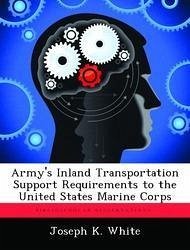Title 10 states that the four service components are responsible for the logistical sustainment of their forces. This responsibility remains constant whether at garrison or deployed. Department of Defense directives and joint and service doctrine all attempt to provide further refinement to Title 10. Unfortunately significant disparities between these documents exist, and assigning logistical responsibility to a single commander is problematic. Joint logistical operations during Operation Iraqi Freedom were challenging. Prior planning for the integrated use of inland transportation assets was completely scrapped, and service components had to fill the resulting transportation shortfall with contracted host nation assets. Had the area of operations been more austere, and local trucks not been available, or had the host nation assets withdrawn due to fear of combat loss, the logistical sustainment of the combat force would have failed. Joint doctrine prohibits service component commanders from establishing duplicate logistical capabilities, deviating from the combatant commanders common user logistical plans, and failing to meet all of their services' logistical needs. The contradictory nature of these three requirements reduce the service component commanders ability to meet the service logistical requirements, and highlight the requirement of review of Title 10, DOD Directives and joint and service doctrine.
Hinweis: Dieser Artikel kann nur an eine deutsche Lieferadresse ausgeliefert werden.
Hinweis: Dieser Artikel kann nur an eine deutsche Lieferadresse ausgeliefert werden.








